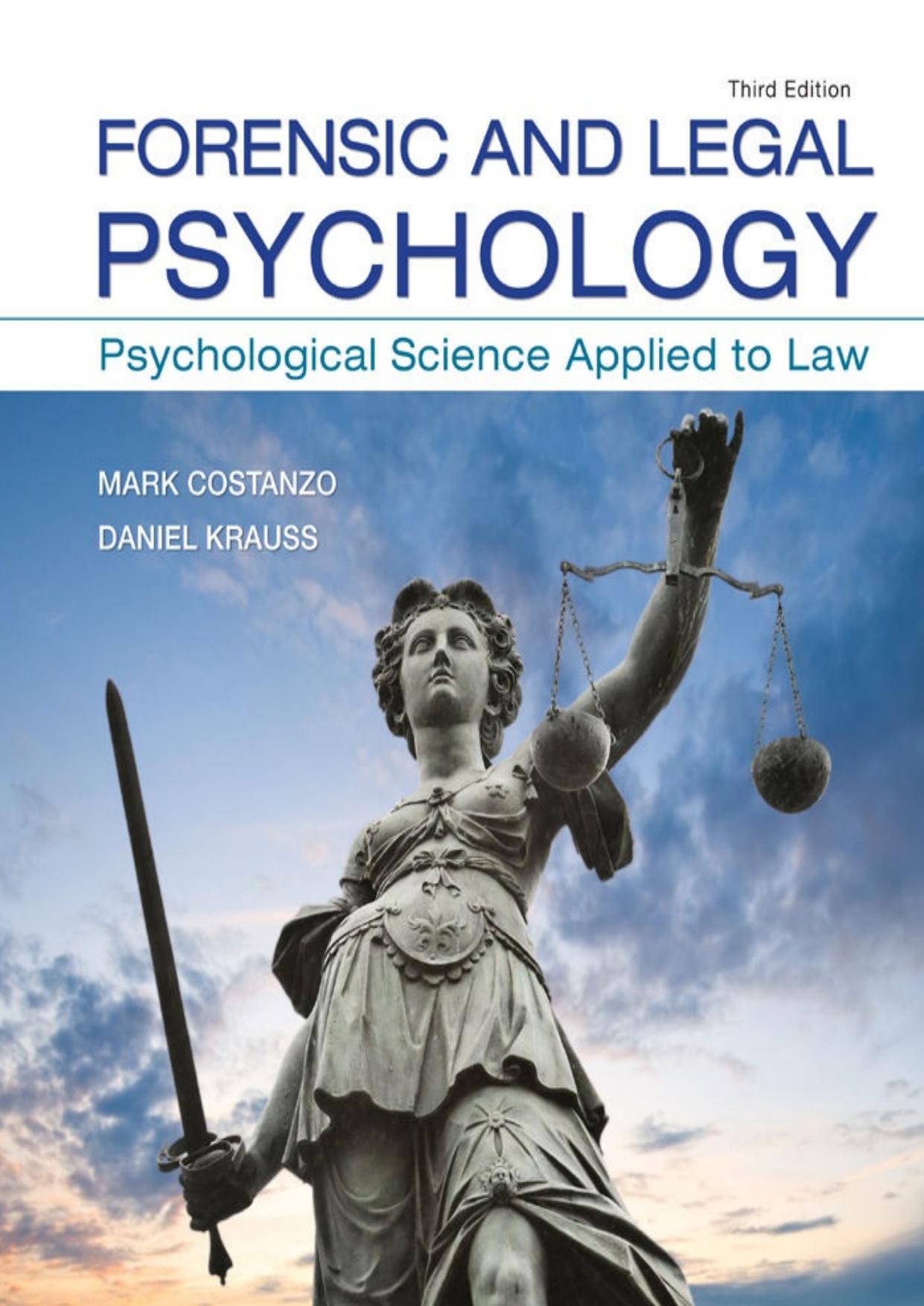Forensic and Legal Psychology by Mark Costanzo & Daniel Krauss

Author:Mark Costanzo & Daniel Krauss
Language: eng
Format: epub, pdf
Tags: Psychology
ISBN: 9781319061593
Publisher: Macmillan Higher Education
Published: 2017-08-05T00:00:00+00:00
Jury Nullification
Juries deliberate in private and are not required to justify or explain the reasoning behind their verdicts. They also have the power to reject (or ânullifyâ) the law. That is, by using the power of jury nullification, juries may base their verdicts on reasoning that ignores, disregards, or goes beyond the law. In part, this result is permitted because juries are expected to represent the moral conscience of the community. That moral conscience may lead them to a different conclusion than the law prescribes (Horowitz, 2008). Even if a defendant is technically guilty in the eyes of the law, he or she may be morally right.
Prior to the American Revolution, jury nullification provided a means of resisting oppressive laws put in place by the British crown. For example, during the Colonial era, a printer named John Peter Zenger was put on trial for seditious libel because he printed articles mocking the royal governor. The trial judge forbade the defense from presenting witnesses to testify that Zengerâs claims were true. In an impassioned closing argument, Zengerâs defense attorney implored the jury to look past the law to find justice:
It is not the cause of a poor printer, nor of New York alone, which you are now trying. No! It may in its consequence affect every freeman that lives under a British government on the main of America. It is the best cause. It is the cause of liberty. (King, 2000, p. 104)
The jury was persuaded. They ignored the law and acquitted Zenger. But, jury nullification has become a double-edged sword. Sometimes, it has enabled jurors to find a just verdict in defiance of the law. At other times, it has enabled jurors to ignore just laws in favor of prejudice. For example, prior to the Civil War, many juries refused to enforce the 1850 Fugitive Slave Law and acquitted defendants who helped slaves escape to freedom in the North; however, following the Civil War, some juries ignored the law and refused to convict whites accused of beating blacks. More modern examples of nullification include Mormon juries in Utah that have refused to convict bigamists or polygamists and juries that acquitted draft resisters and antiwar activists during the war in Vietnam.
During the 1990s, a Michigan physician named Jack Kevorkian was put on trial four times for breaking the law prohibiting doctors from helping their patients commit suicide. There was no question that Kevorkian was guilty of killing his patients. But every one of the patients he killed was suffering from a terminal disease, all were in excruciating pain, and all had asked for Kevorkianâs assistance in ending their lives. In the first three trials, juries refused to convict Kevorkian, apparently believing that the law was unjust and that Kevorkian was acting to end the terrible suffering of his patients. In a final effort to push his challenge of the laws against euthanasia, Kevorkian made a videotape showing him giving a terminally ill man a lethal injection. In his fourth trial, he was found guilty of second-degree murder and sentenced to prison.
Download
Forensic and Legal Psychology by Mark Costanzo & Daniel Krauss.pdf
This site does not store any files on its server. We only index and link to content provided by other sites. Please contact the content providers to delete copyright contents if any and email us, we'll remove relevant links or contents immediately.
Bioenergetica by Alexander Lowen(1472)
The Child in You by Stefanie Stahl(1252)
No Bad Parts by Richard C. Schwartz(1236)
Noise: A Flaw in Human Judgment by Sunstein Cass R. & Sibony Olivier & Kahneman Daniel(1187)
The Data Detective by Tim Harford(1133)
Chatter by Ethan Kross(1061)
The Science of Rapid Skill Acquisition by Peter Hollins(918)
The Quantum Psychiatrist: From Zero to Zen Using Evidence-Based Solutions Beyond Medication and Therapy by Biswas Dona(874)
Freedom by Sebastian Junger(855)
The Montessori Baby by Simone Davies(849)
Maps of Meaning: The Architecture of Belief by Jordan B. Peterson(743)
The Science of Self-Learning: How to Teach Yourself Anything, Learn More in Less Time, and Direct Your Own Education (Learning how to Learn Book 1) by Peter Hollins(729)
Evolution Gone Wrong: The Curious Reasons Why Our Bodies Work by Alex Bezzerides(704)
Sadomasochism and the BDSM Community in the United States by Stephen K. Stein(688)
Anxiety For Dummies by Charles H. Elliott & Laura L. Smith(666)
Why Sex Doesn't Matter by Olivia Fane(660)
Disconnected by thomas Kersting(658)
Jung - The Key Ideas: Teach Yourself (TY Philosophy) by Ruth Snowden(628)
The Mechanics of Passions: Brain, Behaviour, and Society by Alain Ehrenberg(613)
